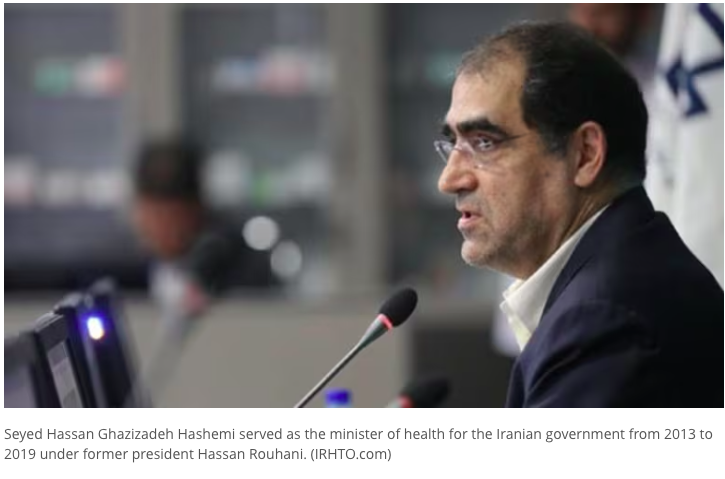
Federal government banning former Iranian minister from gaining temporary residency
Social media posts circulated earlier this month allegedly showed Seyed Hassan Ghazizadeh Hashemi in Montreal.
· CBC News ·
The federal government will deny former Iranian health minister Seyed Hassan Ghazizadeh Hashemi temporary residency following reports that he was spotted in Montreal earlier this summer.
"Based on an assessment of the relevant facts recently brought to my attention, I have exercised my authority under s. 22.1 of the IRPA to prevent Mr. Seyed Hassan Ghazizadeh Hashemi from becoming a temporary resident of Canada for the maximum period of 36 months," Immigration Minister Marc Miller said Monday in a post on X, formerly known as Twitter.
The Immigration and Refugee Protection Act (IRPA), which Miller cited in his statement, allows the immigration minister to deny anyone temporary residency if the minister is "of the opinion that it is justified by public policy considerations."
Miller said his decision was a response to Iran's human rights record.
"The actions of the Iranian regime are reprehensible, and those who bear responsibility have no place in Canadian society," he wrote in his statement.
A number of posts on X began circulating in early August allegedly showing a photo of Hashemi walking in Montreal.
Iran International, a U.S.-based news outlet focused on the Iranian diaspora, first reported on the photo, claiming it was a screengrab from a promotional video for Quebec's tourism industry. CBC News has not confirmed independently that Hashemi was in Montreal.
A spokesperson for Immigration, Refugees and Citizenship Canada, citing protections under the Privacy Act, said the government can't confirm that Hashemi was in Canada in recent weeks.
Hashemi served as Iran's minister of health from 2013 to 2019 under then-president Hassan Rouhani. He was widely seen as the key official behind the 2014 launch of a plan for universal medical insurance.
Canada announced last year that it would be preventing top members of the Iranian regime — including members of the Islamic Revolutionary Guard Corps (IRGC) — from entering Canada.
That measure, which came into force in November, also fell under the IRPA but only applied to senior officials who were part of the regime from November 2019 onward — meaning Hashemi wasn't covered by it.
Kourosh Doustshenas, a spokesperson for the Association of Families of Flight PS752 Victims, called the move to deny Hashemi temporary residency a "positive" one. But he said he thinks the 2019 cutoff for the IRPA measure brought in last fall is "arbitrary" because Iran's human rights record isn't limited to the past four years.
"They [the regime] have been doing it all the time they've been in power. So why would they chose this particular date? It's kind of puzzling," he said, adding that expanding the time period covered by the measure would prevent former regime representatives like Hashemi from entering Canada.
Doustshenas said it's "disheartening" that someone like Hashemi could have entered Canada easily while Iranian refugees often struggle to get in.
Government 'stands by' its policies
Iranian-Canadian lawyer and human rights activist Kaveh Shahrooz said denying Hashemi temporary residency is a "step in the right direction" — but he argued that his presence in Canada proves federal screening processes should be updated.
"If a former minister whose name can be found in the simplest Google search can slip through the cracks, then I think the cracks are simply too wide," he told CBC News.
"We need to better train our officers, make sure that better due diligence is being done and that the doors are being closed to [Iranian] government officials."
The IRCC spokesperson said the government "stands by" the measures it has invoked under IRPA.
"Canada has designated the regime as having engaged in terrorism and systematic and gross human rights violations, applied sanctions, and in this case have used negative discretion under the Act," the statement said.

